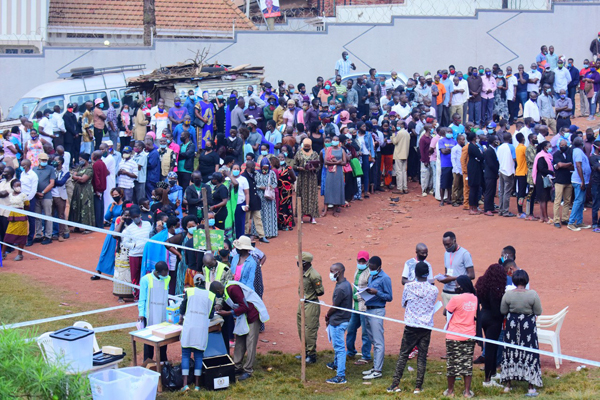Optimize ecumenical voice to address socio-political tensions

Author: Augustine Bahemuka. PHOTO/COURTESY
What you need to know:
- Religious leaders should desist from political or any other suspicious inclinations that may cause bias among the public and even government.
There is one shared element among founding fathers, and mothers, of many countries including our own: God seems to have been their source of inspiration and courage. This opinion is based on differently worded lines embedded in national symbols of various countries that appeal to the Divine. We should, therefore, interest ourselves in knowing the ‘distinct’ role played by the Church on issues affecting our country. This brings to the fore the ages-long contentious philosophical debate between the state and church, which is also occasionally appealed to by pockets of politicians in Uganda.
However, this article will keep that on the periphery. At a recent public event, the President appealed to religious leaders to address social ills affecting our society, especially corruption. In my opinion, the role of religious leaders in addressing issues affecting society goes beyond the social realm.
It is largely agreeable that Uganda enjoys freedom of religious faith and belief, and different faith communities and institutes are able to organise their activities with little or no State influence, provided that they follow the law.
In the past couple of months, we have had significant installations of religious leaders into their respective hierarchical seats. On the occasion of their respective installations, they pledged to fight poverty; and exhorted government to shun corruption and social injustices, including torture as a tool of forceful acquisition of information from citizens in custody; and violations of human rights. This was echoed by Archbishop Stephen Kaziimba of Church of Uganda in his remarks made on Janani Luwum Day, where he called for investigation into the perpetuation of torture because this was not only against human rights, but also disobedience to the President. How then can religious leaders optimize their ecumenical voice to address the various socio-political issues affecting our society?
Ecumenism is principally the invitation to Christians of different denominations to work together in order to build and sustain closer relationships among their churches, and promote Christian unity. In Uganda, the ecumenical space has been actively used to promote peace, reconciliation and unity in conflict-ridden areas; addressing issues affecting democracy and peaceful and fair elections, et cetera. However, what can be done to create more impact of the ecumenical space in addressing the socio-political issues affecting Uganda today? One is unity of purpose. There is need to have one, pro-active, consistent, courageous voice which gives moral direction on different issues, including ethics, economics, environment, climate change, etc. This will certainly require some research in order to gather facts on topical issues, which should be regularly shared with public through press conferences and publications in order to fill the void that can be manipulated by various distractors, particularly online bloggers. Two, impartiality and fairness are golden attributes for proactive ecumenism. Religious leaders should desist from political or any other suspicious inclinations that may cause bias among the public and even government. This builds more public trust and moral authority, which are significant virtues upon which the ecumenical space is founded. This way, the ecumenical space will attain more credibility from the public and even more, become a point of reference for all-round direction and counsel.
Mr Augustine Bahemuka is a commentator on issues of peace and society.




